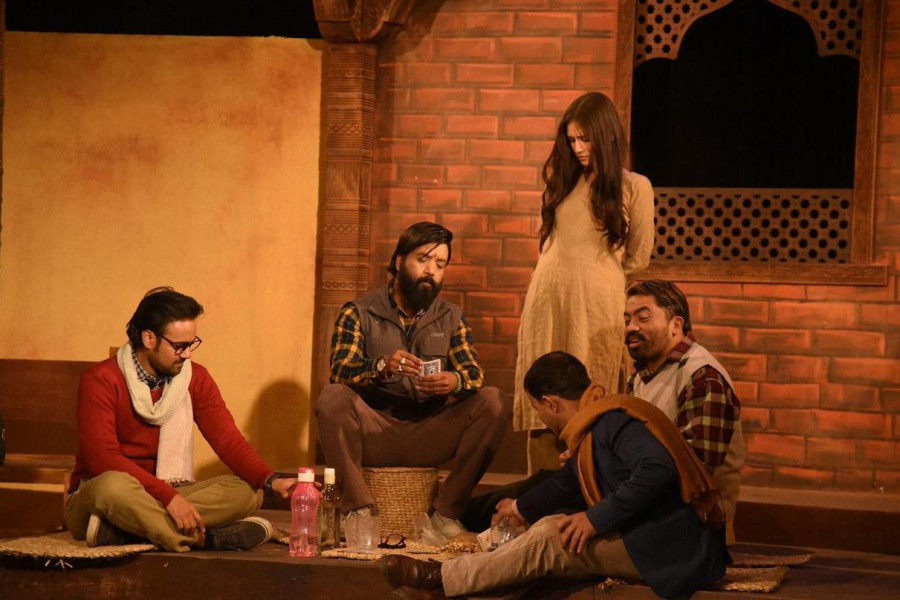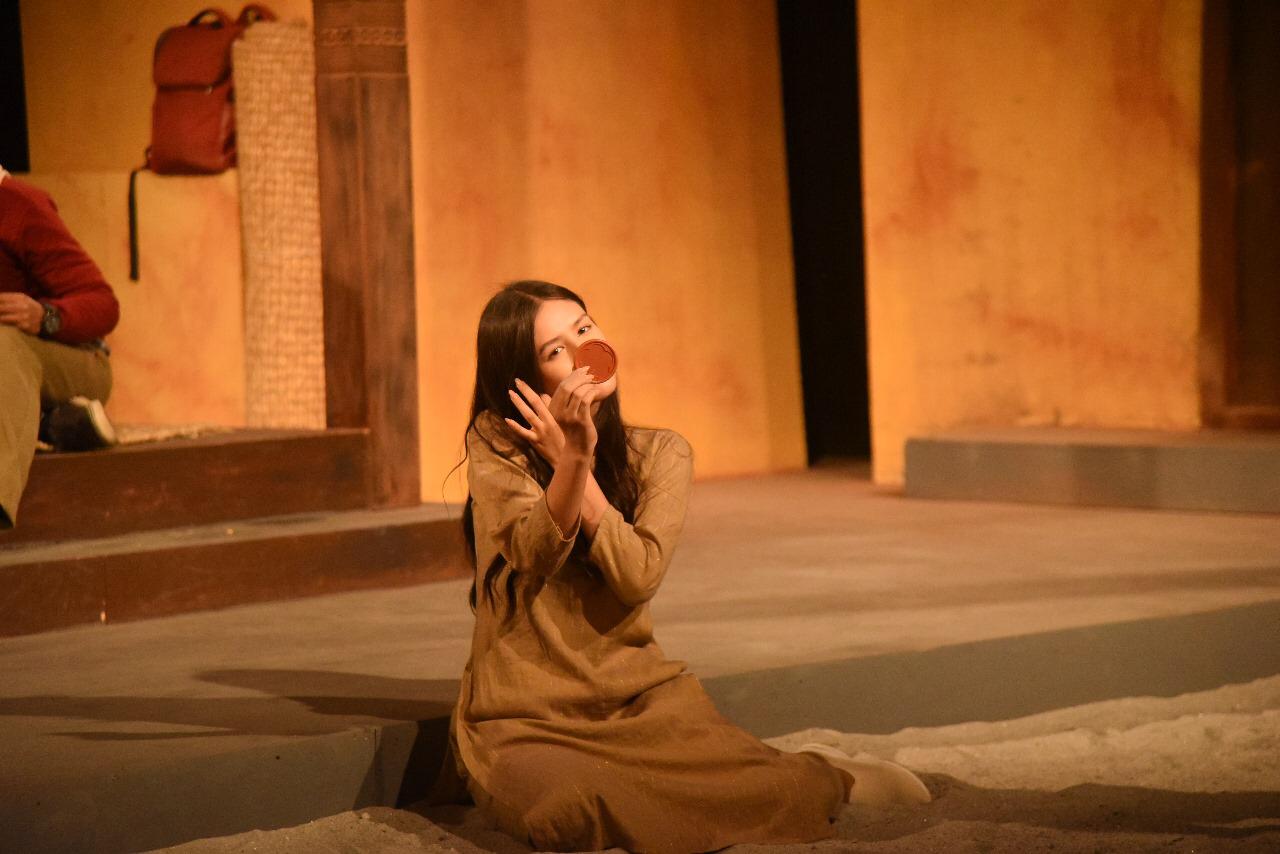Theater
Burdens of the past, let out
‘Pagla Ghoda’, written in the 1960s, takes on a new life in Mandala Theatre as it explores the tumultuous lives of four characters haunted by their dark pasts.
Anish Ghimire
Mandala Theatre has seamlessly adapted a gripping rendition of Badal Sircar’s ‘Pagla Ghoda’. This theatrical art, originally penned in the 1960s, takes on a new life as it explores the tumultuous lives of four characters haunted by their dark pasts.
The funeral of a young girl, played by Malika Mahat, becomes a driving force that peels away the facade of four ordinary men—Shekhar (played by Bijay Tamrakar), Doctor Kapil (played by Ashant Sharma), teacher Ashok (Bimba Adhikari) and Ravi (played by Pramod Agrahari). Set against the sombre backdrop of mourning, the play gradually unveils the layers beneath their big talks and drunken laughter, exposing the raw vulnerabilities that hide beneath their seemingly composed exteriors.
The ghost of the deceased girl appears time and again throughout the play, a spectral presence urging these men to confront their painful pasts. As a bottle of alcohol is opened, the slow unravelling begins, the laughter fades, and the poignant truth surfaces—these men are grappling with their own struggles, unable to free themselves from the clutches of haunting memories.
The candid dialogues revolve around the universal themes of love, life and death. The drunken conversations are not only relatable but also well executed, making the audience feel like part of the group as they witness each sip unlocking a cascade of unwanted memories. The play skillfully reveals that behind every well-mannered adult, there might lie a history of desperation and emptiness.
Topics of suicide, whims and heartbreak take centre stage, expanding into discussions about the characters’ reasons to live. The ghostly presence of the girl becomes a symbolic force, completing the sentences of these men and compelling them to open up about their tormenting pasts.
These four men have experienced heartache at some point in their lives. A girl sits on their history, directing their present and future behaviours. Slowly, as each of them loses consciousness, we learn about their remorseful pasts and the source of their sadness.
Ashok, the youngest in the group and a school teacher, refrains from alcohol. However, he occasionally requests a sip when troubled by memories of his late girlfriend. After a few rounds, he loses control, yelling and rolling on the floor in pain. His girlfriend died in a drunk driving accident, and every drink brings her memory vividly back to Ashok.
When Shekhar separates from the group, the spotlight focuses on him. We witness his desperation in trying to maintain a relationship with his lover, but he ultimately fails, leaving him miserable. In the flashbacks, Mahat portrays the girl. While her acting is generally commendable, there are instances where it seems she might be trying a bit too hard. I appreciate her for taking on all four roles in the same play—a challenging task that she handles well. Her execution includes varied body language and speaking pace, suited to each role.

As they attempt to delve into the circumstances surrounding the death of the girl whose funeral they are attending, the narrative takes us to Ravi’s past. He met her by a river—stranded with nowhere to go. So, he took her home, but to avoid scrutiny from the society, he felt compelled to send her off to work at the house of a wealthy family. Unfortunately, her life took a tragic turn as she experienced abuse and succumbed to illness prematurely.
This girl, who used to feed a dog named Moti, left an indelible mark on Ravi’s psyche. Every time he hears a dog bark, it startles him, serving as a reminder of her. The recurring presence of the dog becomes a symbol, illustrating Ravi’s deep discomfort with his past. His frantic body movements upon hearing a dog’s bark vividly depict the uneasiness and turmoil he harbours within.
The drama comes to a moving close as we discover that doctor Kapil harboured feelings for the deceased girl. Following a series of conversations, the ghost of the girl fixates her gaze on the doctor. She runs frantically to her funeral pyre and begs desperately that it’s not too late to get the body back; perhaps there’s still a possibility, she begs.
The girl reveals that all she needs in life is love, and the revelation takes a tragic turn. Regretfully, she finds out about the doctor’s affection for her only after her passing. She tries to undo the irreversible in a last-ditch effort to salvage her sad suicide, but time’s merciless hand says it’s too late. Even in the face of irreversible disasters, love and understanding can have a great impact, as the highly charged ending poignantly reminds us.
In his portrayal of Kapil, Ashant Sharma brings such authenticity to the character that genuine tears fill his eyes by the end. This deep immersion in the role adds a profound and impactful realism to the performance, making the entire experience even more powerful for the audience.
The exploration of human vulnerabilities, love’s complexities, and the haunting effects of past actions leave a lasting impact, making it a theatrical experience that transcends language and cultural boundaries. Ghanshyam Shrestha’s directorial prowess, coupled with the remarkable cast, ensures that Sircar’s timeless narrative continues to captivate audiences, offering a poignant reflection on the human condition.




 18.12°C Kathmandu
18.12°C Kathmandu











